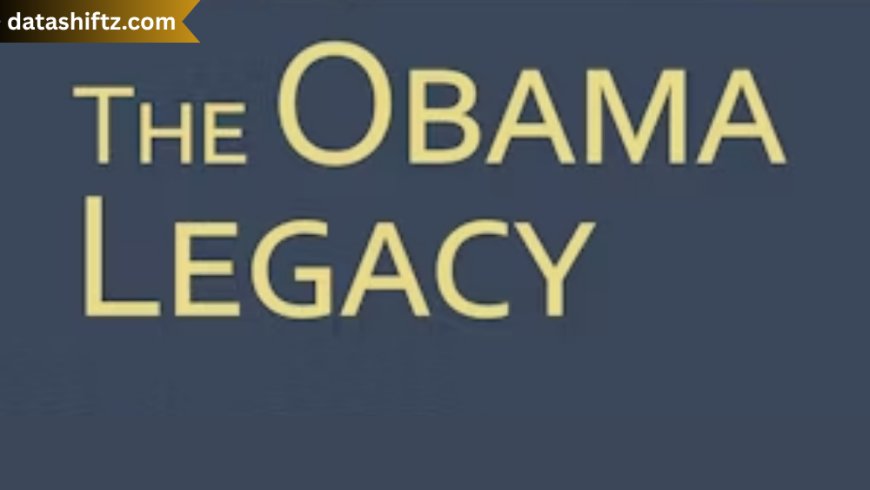Barack Obama: A Legacy of Hope, Change, and Leadership

Introduction
Barack Obama is a name that resonates around the world as a symbol of progress, resilience, and historic change. As the 44th President of the United States and the first African American to hold the office, Obama’s presidency marked a turning point in American political and cultural history. From his compelling rise through the political ranks to his impactful leadership and enduring legacy, Barack Obama continues to influence national and global conversations.
This blog post provides a detailed look at the life, presidency, and post-presidential endeavors of Barack Obama. With insights into his background, political achievements, challenges, and ongoing influence, this article aims to capture the essence of a leader who changed the course of history.
Early Life and Education
Humble Beginnings
Barack Hussein Obama II was born on August 4, 1961, in Honolulu, Hawaii, to a Kenyan father, Barack Obama Sr., and an American mother, Ann Dunham. His early life was shaped by diversity and cross-cultural experiences. After his parents’ separation, Obama lived in both Hawaii and Indonesia, where his mother worked in development and education.
Academic Journey
Obama’s educational path reflected his intellectual curiosity and drive:
-
Attended Occidental College in Los Angeles
-
Transferred to Columbia University in New York, where he majored in Political Science
-
Graduated from Harvard Law School in 1991, where he became the first African-American president of the Harvard Law Review
Barack Obama’s Political Rise
Community Organizer and Civil Rights Lawyer
Before entering politics, Obama worked as a community organizer on the South Side of Chicago, advocating for job training and neighborhood improvement. He later practiced as a civil rights attorney and taught constitutional law at the University of Chicago Law School.
Illinois State Senate (1997–2004)
Obama served in the Illinois State Senate, where he worked on ethics reform and health care legislation. His reputation as a thoughtful and collaborative leader grew steadily during this time.
U.S. Senate (2005–2008)
Obama was elected to the U.S. Senate from Illinois in 2004, gaining national attention with a powerful keynote speech at the Democratic National Convention. His speech highlighted themes of unity, opportunity, and hope, laying the foundation for his future presidential campaign.
The Historic 2008 Presidential Campaign
“Yes We Can”
Barack Obama announced his candidacy for president in February 2007, launching a campaign centered on hope, change, and a new kind of politics. Running against Democratic rivals including Hillary Clinton, Obama’s grassroots movement gained momentum quickly.
He chose Joe Biden as his running mate and defeated Republican nominee John McCain in the November 2008 election, winning 365 electoral votes and over 69 million popular votes.
2008 Presidential Election Summary
| Candidate | Party | Electoral Votes | Popular Votes |
|---|---|---|---|
| Barack Obama | Democratic | 365 | 69,498,516 (52.9%) |
| John McCain | Republican | 173 | 59,948,323 (45.7%) |
Presidency (2009–2017): Key Achievements and Challenges
Domestic Policy
Obama entered office during the Great Recession, and his administration’s early focus was economic recovery and reform.
Major Domestic Achievements
-
The Affordable Care Act (2010) – Commonly known as Obamacare, this landmark law expanded healthcare access to over 20 million Americans.
-
American Recovery and Reinvestment Act (2009) – Stimulus bill to revive the U.S. economy.
-
Dodd-Frank Act (2010) – Financial regulatory reform to prevent future economic crises.
-
Repeal of “Don’t Ask, Don’t Tell” (2010) – Allowed LGBTQ+ individuals to serve openly in the military.
-
Deferred Action for Childhood Arrivals (DACA, 2012) – Provided temporary protection from deportation for undocumented immigrants brought to the U.S. as children.
Foreign Policy
Obama’s foreign policy aimed at diplomacy and restoring America’s global image.
Notable Achievements:
-
Nobel Peace Prize (2009) – Awarded early in his presidency for efforts to strengthen international diplomacy.
-
Operation Neptune Spear (2011) – Led to the death of Osama bin Laden, the mastermind of the 9/11 attacks.
-
Cuba Relations (2014) – Re-established diplomatic ties with Cuba after decades of estrangement.
-
Paris Climate Agreement (2015) – Signed an international accord to combat climate change.
Challenges and Controversies
While Barack Obama’s presidency saw groundbreaking achievements, it was not without criticism and challenges.
Key Challenges:
-
Partisan Gridlock – Faced strong opposition in Congress, especially after Republicans took control of the House in 2010.
-
Healthcare Rollout Issues – The initial launch of Healthcare.gov was plagued with technical problems.
-
Foreign Policy Criticism – Mixed results in Syria and the rise of ISIS sparked debate about America’s global strategy.
-
Drone Warfare – The expansion of drone strikes raised ethical and legal questions about targeted killings.
Legacy and Post-Presidency
Cultural and Political Legacy
Barack Obama’s presidency is remembered for its symbolic importance, eloquence, and inclusive message. As the first African American president, his election was a transformative moment in U.S. history.
He remains a global advocate for democracy, civil rights, and youth empowerment.
Post-Presidential Initiatives
After leaving office in January 2017, Barack and Michelle Obama have remained active in civic life:
-
Obama Foundation – Promotes leadership development, civic engagement, and global problem-solving.
-
My Brother’s Keeper Initiative – Addresses opportunity gaps facing young men of color.
-
Memoir “A Promised Land” (2020) – A bestselling reflection on his early life and presidency.
-
Netflix Deal – The Obamas produce socially impactful documentaries and films through Higher Ground Productions.
Top 10 Highlights of Barack Obama’s Career
-
First African American President of the U.S.
-
Affordable Care Act Signed into Law
-
Received Nobel Peace Prize
-
Osama bin Laden Operation Success
-
Restored U.S.–Cuba Relations
-
Passed Economic Stimulus to Fight Recession
-
DACA Policy Enacted
-
Marriage Equality Supported
-
Climate Advocacy Through Paris Agreement
-
Global Influence Beyond Presidency
Quick Facts About Barack Obama
| Attribute | Detail |
|---|---|
| Full Name | Barack Hussein Obama II |
| Date of Birth | August 4, 1961 |
| Place of Birth | Honolulu, Hawaii |
| Political Party | Democratic |
| Education | Columbia University, Harvard Law |
| Profession | Lawyer, Professor, Politician |
| Presidential Term | January 20, 2009 – January 20, 2017 |
| Vice President | Joe Biden |
| Spouse | Michelle Obama |
| Children | Malia and Sasha Obama |
Barack Obama’s Influence on Future Generations
Barack Obama has become a role model for millions worldwide. His eloquence, calm demeanor, and visionary leadership have inspired young people, especially from marginalized communities, to engage in politics and activism.
His legacy is carried forward through books, speeches, podcasts, and initiatives that focus on:
-
Leadership development
-
Climate change
-
Racial justice
-
Education reform
Conclusion
Barack Obama’s journey from a community organizer in Chicago to the 44th President of the United States represents a remarkable story of perseverance, purpose, and hope. His presidency not only changed the course of American history but also redefined what leadership looks like in the modern age.
Even after leaving office, Obama’s voice remains powerful in shaping public discourse, encouraging civic engagement, and championing equality and progress. As history continues to evaluate his impact, one thing is clear: Barack Obama’s legacy is one of transformation, inspiration, and enduring influence.





























